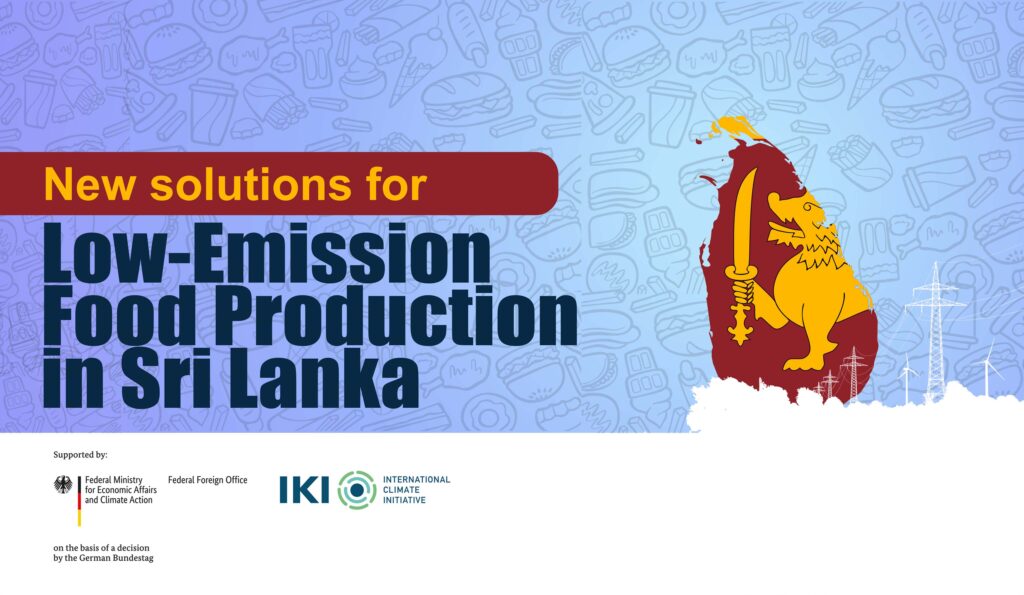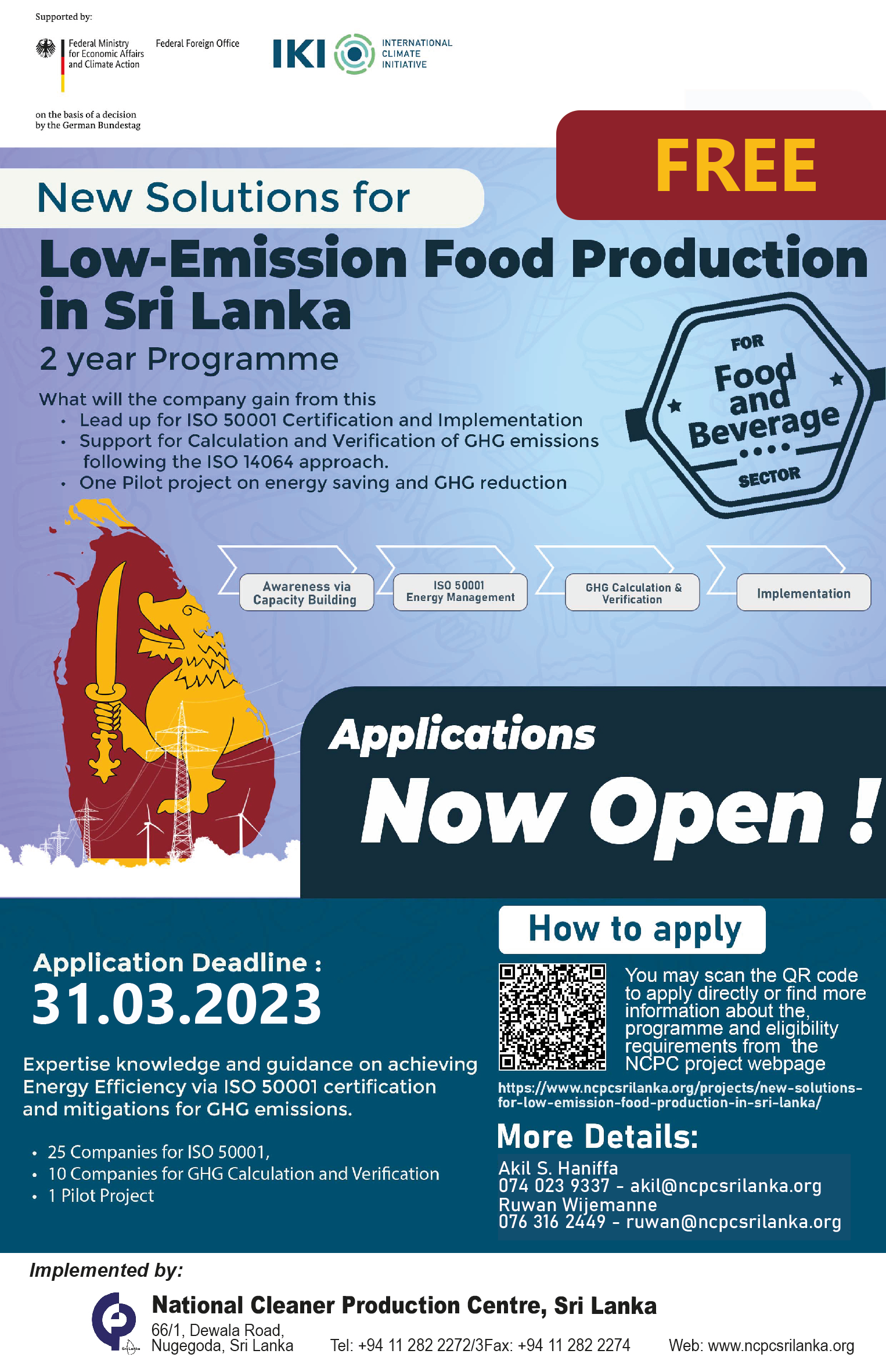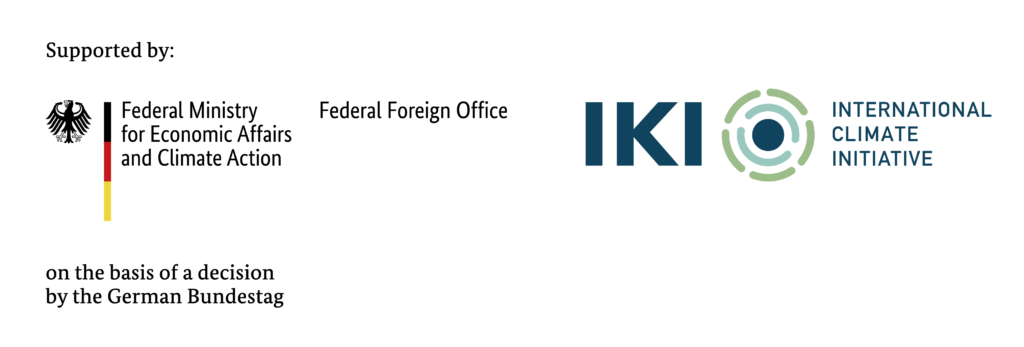
Project Details
- Current status of the project: Completed
- Project funded by: IKI Small Grants
- Project started on: 2022
- Project completion: 2024
Sri Lanka is experiencing a shortage of foreign exchange for fuel imports, shredded fuel supplies and uncertainty to continuous electricity. Fuel prices have increased by 300% and electricity tariffs are expected to increase by more than 60% (for some sectors, the price increase will be 800%). Western, North Western and Southern have the highest density of industry establishments; hence highest environmental pollution. The western province accounts for 33% of the total waste generation in the country which is fairly a significant amount. Western province reported the 6,149,000 largest shares of the population (28.7%) and Southern province reported 2,654,000 number third highest population (12.2%) in the country. As a result of environmental pollution, the community is affected by social and health problems, and visible action is needed to minimise pollution and improve resource efficiency.
”New solutions for low-emission food production in Sri Lanka” aims at the Mitigation of GHG emissions from industrial activities of food and beverage sector companies namely food producing, processing, packaging, distributing, retailing and improving the production process with best practices. The project aims to scale up the companies with international certification for energy management via implantation of Energy Management Systems through the ISO 50001 scheme and the verification of GHG emissions of the companies according to the ISO 14064-1 standard while converting non-renewable energy such as Heavy Fuel Oil (HFO), Diesel, Kerosene, and Liquified Petroleum Gas (LPG) technologies to renewable technologies such as biomass and solar.
Project Stages
The stages of the programmes procedures are as follows
- Baseline where significant energy users in the food sector are identified SMEs and implement ISO 50001 Energy Management System. The identification is drawn from the support of the Industrial Development Board (IDB).
- Capacity Building on Reduction of GreenHouse Gas (GHG) emissions: Verify the GHG emissions of the company by conducting a thorough study on emissions. The capacities of the companies in the quantification of GHG emissions will be developed through training by the project team of the NCPC, Sri Lanka. Based on the training obtained, the GHG emissions will be quantified, and the report will be prepared by the companies themselves. Thereafter, the report will be verified by the GHG verification team at NCPC, Sri Lanka according to ISO 14064-1 standard.
- Capacity building on renewable energy and energy efficiency and Implement one pilot project. The companies. The participants will be privileged to expose their industry to advice and knowledge from the expertise about converting to renewable technologies. The food industries will gain the opportunity to enhance their competency to manage and conserve energy within the company. Participants will be assisted in obtaining the ISO 50001 certification and verification of GHG Emission. Energy assessments and in-house capacity building helps the organisations to improve their energy efficiency and reduce their emissions. The companies are evaluated by conducting assessments.
- Finally a pilot project will be implemented to the selected company at the end of the project. The pilot project is implemented for a selected company with the objective of saving energy and reducing GHG emissions. Where varying options will be presented to the company in order to implement the necessary actions.
Target Groups
This IKI Small Grants project targets energy-intensive SMEs in the food sector that exceeds a monthly energy consumption of more than 50,000 kilowatts/megajoules. Both electricity and at least one thermal energy source are considered. The selection process includes the publication of a call for applications in public media aimed at interested companies. The project activities intervene directly in the manufacturing process so that the company has an immediate benefit by minimised costs and improved production processes with reduced losses.Eligibility Criteria for Companies
- Companies from the Food or Beverage sector.
- Companies that use more than one energy source (electricity, diesel) with at least one thermal energy source will be considered.
- Willingness to commit all two years to the programme.
- Unavailability/lack to ISO 50001 scheme
 Under the ”IKI – Small Grants programme”, NCPC, Sri Lanka is providing the services for delivering activities related to the ‘‘New solutions for low-emission food production in Sri Lanka’’.
To learn more about the programme and its advantages, top management from the food and beverage industries are cordially invited to register.
Under the ”IKI – Small Grants programme”, NCPC, Sri Lanka is providing the services for delivering activities related to the ‘‘New solutions for low-emission food production in Sri Lanka’’.
To learn more about the programme and its advantages, top management from the food and beverage industries are cordially invited to register.